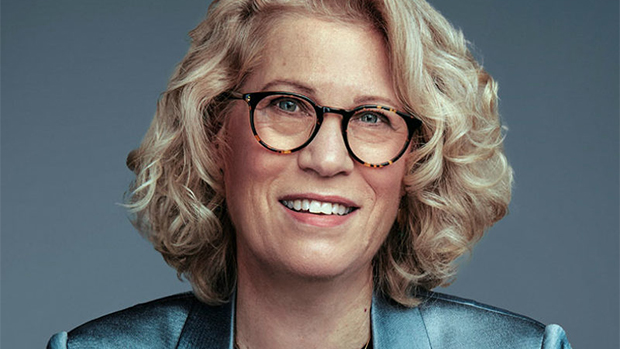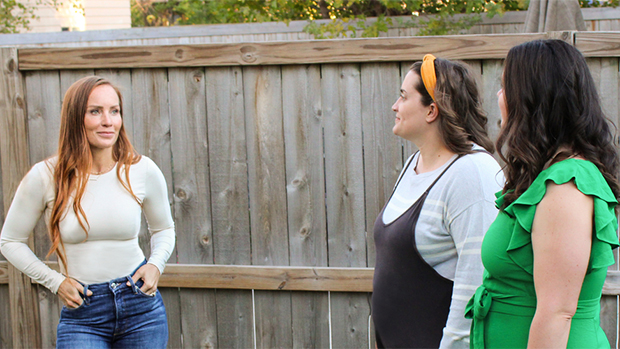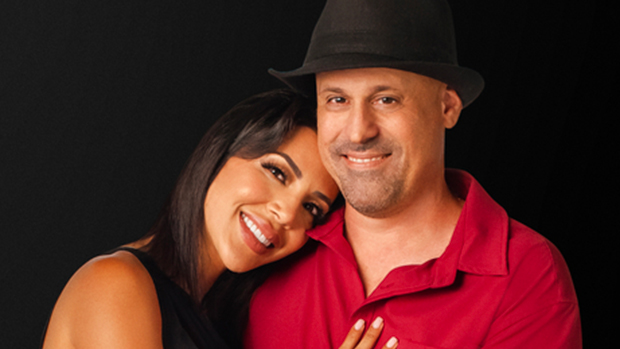Kathleen Finch, WBD and cable TV are entering new chapters
As the veteran exec retires from heading WBD’s US linear group, Kathleen Finch discusses how new business models are being embraced in the formerly rigid cablenets and why the term ‘cable’ is limiting in today’s market.

Kathleen Finch is calling time on her WBD career
As the year winds down, veteran factual supremo Kathleen Finch is calling time on an executive career that has seen her lead some of the biggest brands in the history of unscripted television.
The chair and CEO of Warner Bros Discovery (WBD)’s US networks portfolio is handing the reins to Warner Bros TV Group chairman and CEO Channing Dungey, who takes up the mantle at the beginning of 2025.
Before taking up her current role amid the WBD merger in 2022, Finch was the chief lifestyle brands officer at Discovery, overseeing HGTV, Food Network, TLC, ID Network and Travel. She had entered the Discovery orbit in 2018 when the factual juggernaut acquired Scripps, where she was the chief programming, content and brand officer. Before joining Scripps in the late 90s, she was a writer and producer at CBS News for more than a decade.
Finch has been one of the more influential execs in the US cable business for the past decade, and as she prepares to sail off into the sunset, she has one favour to ask: stop calling it cable, please.
Ask her what advice she would give anyone running a portfolio of American networks in 2024, Finch says she would “stop using the word ‘cable’, because what we do is content, and where it’s viewed is where the audience chooses to find it.”
“We need to stop limiting ourselves to ‘I’m a cable exec, I work in cable, I’m making cable content.’ That’s going away at some point, right? So what we all are is creatives,” she continues, adding that focusing too squarely on the fact linear is declining is a demotivating factor for the people working in it.
Part of her insistence that the term cable is limiting lies in the fact the content produced for WBD’s stable of linear brands also streams on Max both in the US and internationally. The international footprint of the content commissioned by the likes of Discovery, HGTV, Food Network, TLC and Investigation Discovery goes far beyond US linear viewers, argues Finch, meaning the content’s value registers far beyond its original airing.

House Hunters: a show ‘any creator should be incredibly jealous of’
Despite Finch’s protestations, there is certainly a business divide emerging between the linear business and the streaming business, as evidenced by WBD’s recent decision to restructure the company into two divisions – one for its US networks and the other for its streaming and studio assets.
While WBD’s announcement came after C21 spoke with Finch, she gave a fiery defence of the business and economics of cable, which, while clearly in a state of decline, continues to turn a major profit to the tune of US$2.12bn in WBD’s most recent quarter.
It is not just important to retain that profit engine, but also to ensure quality programming is being fed through to other parts of the WBD ecosystem, argues Finch.
“There are lots of benefits to keeping the linear business healthy, and ours is still a 50%-margin, multi-billion-dollar business. That is slowing, but not dead,” she says. “It’s a dual revenue business [subscription and advertising] and for years and years and years we were basically printing money. That has levelled off a little bit it, it’s not the same as it was, but it’s still a hell of a business.”
Finch asserts that WBD’s US linear networks, which still produce around 3,000 hours of original content annually, and are still a smart place for unscripted producers to bring their projects, rather than streaming platforms that are increasingly viewed as slightly more enticing options for producers.
“I always think we’re a great company to provide content to, because we are in the volume game. If something works, we will make many, many, many seasons of it,” she says.
“Unlike a streamer, we have a lot of shelf space that we have to fill. Netflix doesn’t need five different premieres in a day. I do. So we really need to make sure that across the portfolio of our networks, we have premier content for people to [watch] every single night.”

90 Day Fiancé has been airing for a decade
Regarding the best formats she has overseen during her long career, Finch highlights HGTV real estate series House Hunters. From a “business standpoint,” the show is one that “any creator in this room should be incredibly jealous of,” she says.
Since it debuted in 1999, House Hunters has aired for more than 1,000 episodes and spawned more than a dozen spin-offs.
Finch calls it a “genius” format whose simplicity has led to its enduring appeal. “It’s basically a two-man crew that goes out and shoots the show in a day or two, and it’s incredibly highly rated – we can’t get enough episodes.
“Those sorts of genius ideas are the ones that I’m always the proudest of, because it’s stealth. It’s not a sexy show, but it generates a lot of fandom and revenue. In the States, we air it at 22:00 and 22:30 every single night on HGTV, and people turn it on like it’s the evening news and just fall asleep to it. And it was just one of those brilliant shows where who would have thought something so simple would turn into such a powerhouse?”
Dating format 90 Day Fiancé, which launched a decade ago, is another that has a special element that has enabled it to endure, says Finch.
While linear television might increasingly be viewed as an outdated mode of consumption, the pressures being placed on the legacy business are forcing its purveyors to step out of their comfort zones.
Across the pond, this was evidenced by last week’s news that ITV has struck a pact with YouTube that will see the UK broadcaster put thousands of hours of content on the Google-owned video platform.
For WBD’s cable networks, the change has come in the form of being receptive to new business models, including – gasp – being more open to sharing rights.
“The business is changing so fast, and how we monetise [content] is not the same as the way we did five years ago,” she says. WBD has recently done a few deals where it does not take worldwide rights and doesn’t do a full buyout, which Finch concedes has “always been our way of doing business.”
For the right project, there’s a much greater openness to new business models. “We’ve decided that the old ways we used to do business are a little bit limiting,” says Finch. “Let’s get creative.”
That openness has also led WBD to begin playing in the branded entertainment space. In the past, there was a “church and state approach” within Discovery and later WBD whereby advertising was not often integrated with the content. That is also beginning to break down as pressure on budgets has intensified, with WBD’s US networks increasingly open to being pitched shows with a branded content element.
It has now been almost six months since it was first revealed Finch was retiring from her post at year’s end. That has meant everything was out in the open as Finch began transitioning oversight of the network’s portfolio to Dungey. However, Finch jokes that it might have been nice to leave the announcement until a little later.
“It’s been the longest goodbye ever. I will say, for anybody who decides to retire, you might want to let everybody know closer to your retirement date than half a year, but it’s been really good,” she says.
And as for what comes next, Finch says the only thing she is sure of is that she might struggle to sit on the sidelines. She had conveyed her desire to step back to WBD president and CEO David Zaslav a “long time ago,” but is not sure if she will be involved in the content business in one capacity or another in the future.
“I have never not worked, so I don’t really know what free time is going to be like. My husband keeps telling me it’ll be fun, but I keep warning him that I’m not going to be fun – I’m used to being busy,” she says. “I’ve loved this business and have been in it forever, so I don’t know.”
This article is based on Kathleen Finch’s keynote interview at Content London earlier this month.










































